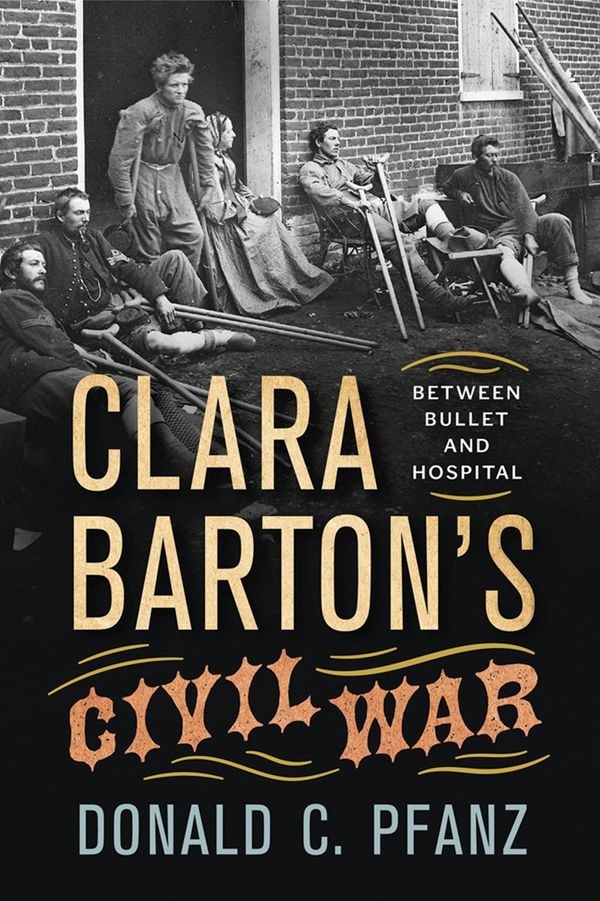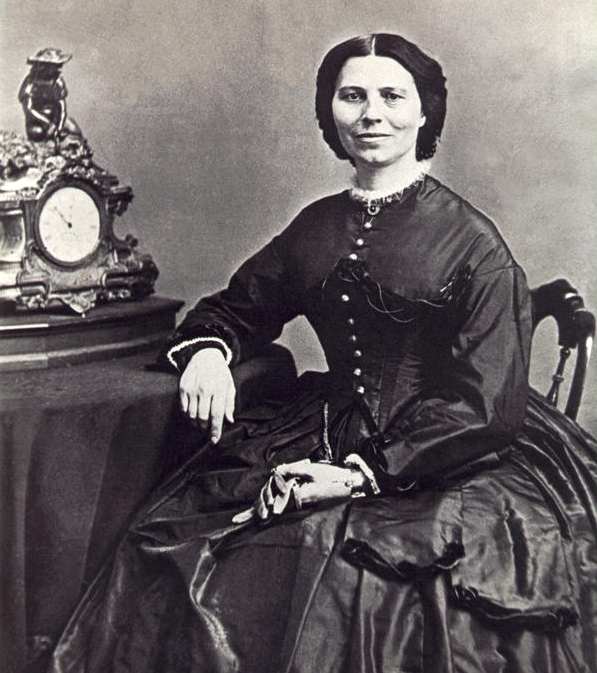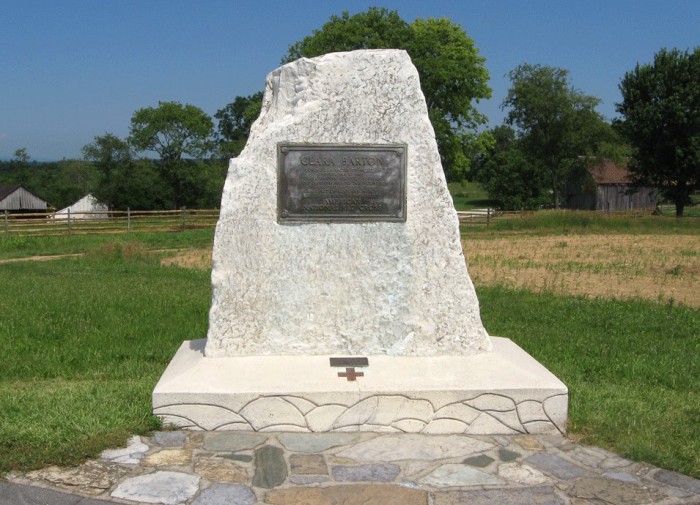
Recently published, Clara Barton’s Civil War is a new look at this icon of humanity. Barton, the famed ‘Angel of the Battlefield’ will be well-known to students of the American Civil War and is renowned for her work tending casualties on the battlefields of the War, forming the Missing Soldiers Office, and ultimately establishing the Red Cross in America in the early 1880s. Anyone who has visited the battlefield of Antietam will have seen the memorial to her and her work. Given this renown, it would seem that a new work on Barton would have little to add, but this book proves that idea wrong.
This new biography is written by Donald C. Pfanz, who has a long and distinguished career in the United States National Park Service serving at a number of its Eastern Theatre Civil War battlefield sites. It was during his tenure at Fredericksburg and Spotsylvania National Park that he became interested in Barton’s story and began to research her and her activities. To his surprise, the primary sources appeared limited and the principal biography, when examined, seemed to rely on Barton’s own testimony in letters and self-publicising lectures after the war as the main source. Pfanz has therefore set out to produce a more accurate and balanced recounting of her fascinating life and as he states in his Preface to produce a ‘more realistic, but no less remarkable account of Clara Barton’s Civil War’.

He does indeed achieve this aim. He very carefully and meticulously breaks down the Barton myth and gets to the facts. He debunks some of the more incredulous stories of Barton’s activities. He examines how post-war she was focused on developing a public and media persona at the expense of other of her wartime co-workers. As Pfanz recounts in relation to one of her wartime colleagues:
‘…when Barton spoke to audiences about her Civil War experiences, she never once mentioned Welles, nor any of her other associates. To do so might have detracted from her own accomplishments, and that would simply not do. Clara Barton craved the spotlight, and would not share it with anyone…’
Pfanz characterises Barton as single-minded and fiercely independent in her wartime activities. Quite rightly she saw the need for additional medical and care facilities as crucial facets of the modern battlefield, and these were being provided not only by Barton and her colleagues but also the Sanitary and Christian Commissions. But as Pfanz states:
‘Despite outward praise for the Sanitary and Christian Commissions, Barton continued to view them as rivals in the business of battlefield relief. She would cooperate with them and the various state agencies if she had to, but she would never join them.’
The book is not solely critical and Pfanz gives credit where due, especially in relation to the Missing Soldiers Office set up by Barton to provide information to families about soldiers missing in action. Despite poor funding and lacking official recognition, between the end of the Civil War in 1865 and 1867 when the enterprise was closed down, Barton claimed to have answered 63,182 letters from families and identified more than 22,000 missing soldiers. No mean feat.

The author concludes by acknowledging that despite her tendency to exaggerate her own achievements, Barton merits much of the praise she has received for her work during the Civil War and after. Today her work is recognised in monuments at Antietam and Andersonville, and a plaque in Washington DC. She has had historic buildings and a number of schools named after her, with an irony that the author highlights:
‘Throughout her life she desperately sought public recognition and praise. She would be gratified to know that, more than a hundred years after her death, Americans still honor her memory.’
This is a well-written book that, although produced to debunk myths and set the history straight, does not seek to assassinate Barton’s character. For students of the American Civil War, this is an interesting and thought-provoking read which will change some perceptions. Equally, for the reader of historical biography, this is a fascinating story of publicity seeking and the cult of personality in an age long before the internet and social media.
Hardback
Pages: 240
Westholme Publishing
Published: 2018